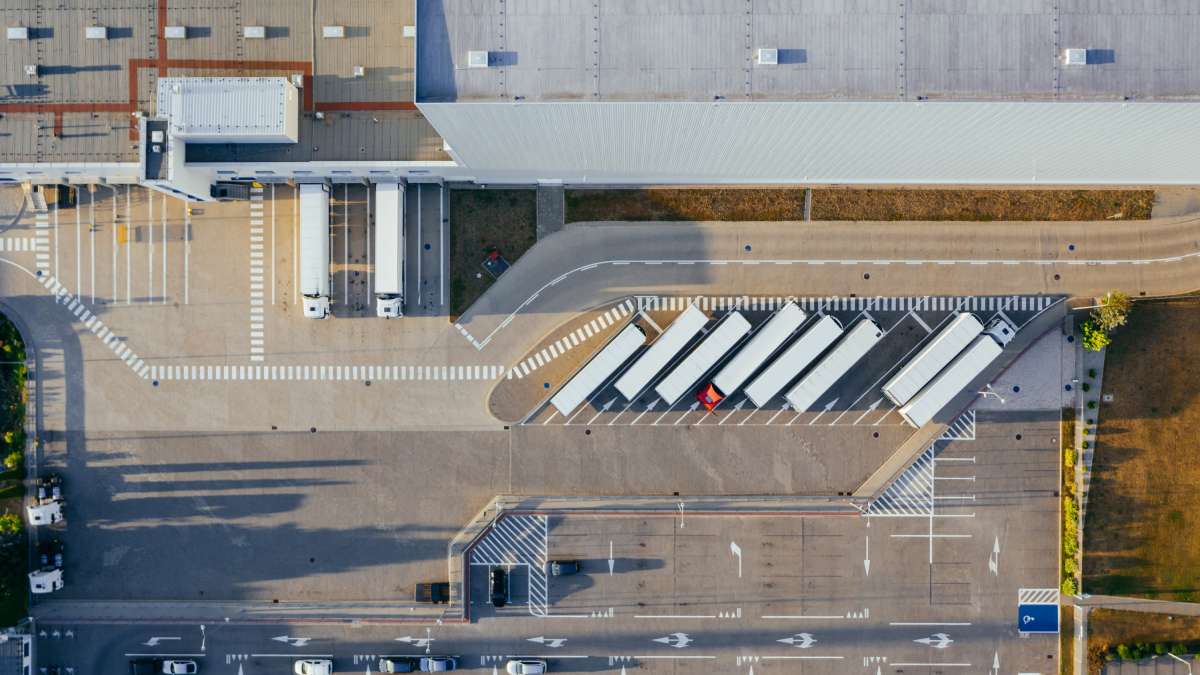This article is part of the folder : Le projet InTerLUD+ : Innovations Territoriales et Logistique Urbaine Durable
See the 18 news related to this folder

The transport sector is the second largest in France for energy consumption and the main emitter of CO2 with 39% of total greenhouse gas emissions (figures from 2015).
This concerns goods transport in particular because it is still very much dependent on road transport, and generates considerable greenhouse gas emissions as well as atmospheric pollutants.
Logistics, a key lever to meet the challenges of ecological transition

To facilitate ecological and energy transition, the public authorities are taking steps and low emission zones (ZFE) are going to be created in 19 conurbations to gradually limit access to city centres for vehicles that generate too much pollution.
In addition France has implemented a National low carbon strategy, by which it undertakes to reduce greenhouse gas emissions by 75% in 2050 compared to 1990.
In this context, the economic players (hauliers, wholesalers, producers and industrial companies, mass retail), in particular those who transport their goods themselves (artisans, shops…) will also require support to adapt to ecological and energy-saving requirements, while maintaining their economic competitiveness.
The InTerLUD programme will support 50 local authorities of different sizes (15 metropolises, 25 medium-sized communities of conurbations and 10 small communities of conurbations) and capitalise on the lessons learned to disseminate them nationally.
It aims to create and strengthen spaces for dialogue that are necessary between public sector and economic stakeholders of a particular area and also at the national level, to support the transition to more sustainable urban logistics and to structure the relevant sectors of activity.
As a specialist in transport and urban logistics, Cerema is a member of the steering committee. Its experts have participated in the discussions concerning the urban logistics charters, now incorporated into the national strategy "France logistics 2025".
Charters co-constructed by public and private sector stakeholders for more sustainable urban logistics

Six local authorities who experimented with implementation of sustainable urban logistics charters in 2017 and 2018 expressed the need for support and methodological tools. This is the purpose of the InTerLUD project.
Led by Cerema, Logistic Low Carbon (affiliate of CGI - wholesale and international trade confederation), Ademe (French environmental and energy saving agency) and the Rozo engineering firm, the InTerLUD project aims in the next 3 years to deploy 50 sustainable urban logistics charters in France.
The purpose of these charters is to set up contracts for the many voluntary actions between public and private sector stakeholders, short-term businesses, to improve conditions for transporting goods in urban areas.
The programme is aimed principally at medium-sized towns and metropolises, where urban logistics issues can be complex. It can be financed up to 70% by the Energy Saving Contracts for communities of conurbations and communities of municipalities, and up to 50% for metropolises and urban communities.
InTerLUD comprises five main strands:
-
Awareness-raising of stakeholders (local authorities and economic sectors) about the current challenges of urban logistics, the possible actions and existing tools such as urban logistics charters. Regional events will be organised in partnership with local authorities and businesses, also facilitating networking of the different players.
-
Creation of an on-line platform to capitalise on best practices and make on-line tools available to economic players (GPS navigation taking account of municipal traffic orders, localisation of alternative energy charging points, etc.).
-
Support for regions who decide to draw up a charter. The idea is to grant a substantial subsidy (up to 70% for small local authorities) contributing to the cost of creating urban logistics charters. Mobilisation seminars bringing together public sector and economic stakeholders will also be organised in the regions that wish to benefit from the programme, to start the process at the local level.
-
Training of players to develop the collective skills of stakeholders (tools and materials for training of public sector and economic players).
-
Overall assessment of the effects of the programme, as the project moves forward, to measure its contributions and achievement of the expected objectives in terms of emissions and energy consumption. Result indicators and an assessment methodology will therefore be defined.
All the info on the site:
What is the time line?

From October 2020 onwards, organisations interested in the project were invited to get in contact with the InTerLUD programme leads. The initial task for the project was to define the regions that would be its partners.
Several means of action will be proposed to contribute to mobilising the players in each region, co-constructing on-line tools or setting up a sustainable urban logistics charter with the help of the toolbox which is already available: Voluntary commitment in favour of sustainable urban logistics.
Regional workshops and webinars will then be organised to disseminate knowledge to the regions who want to participate in this project, share feedback, facilitate networking of the participants and prepare for the consultation phase.
Training courses will be organised for local authorities and engineering firms on how to draw up urban logistics charters.
Contact
To find out more, don’t hesitate to contact the lead partners of the programme!
This is the Cerema contact:
Learn more
In the folder : Le projet InTerLUD+ : Innovations Territoriales et Logistique Urbaine Durable


